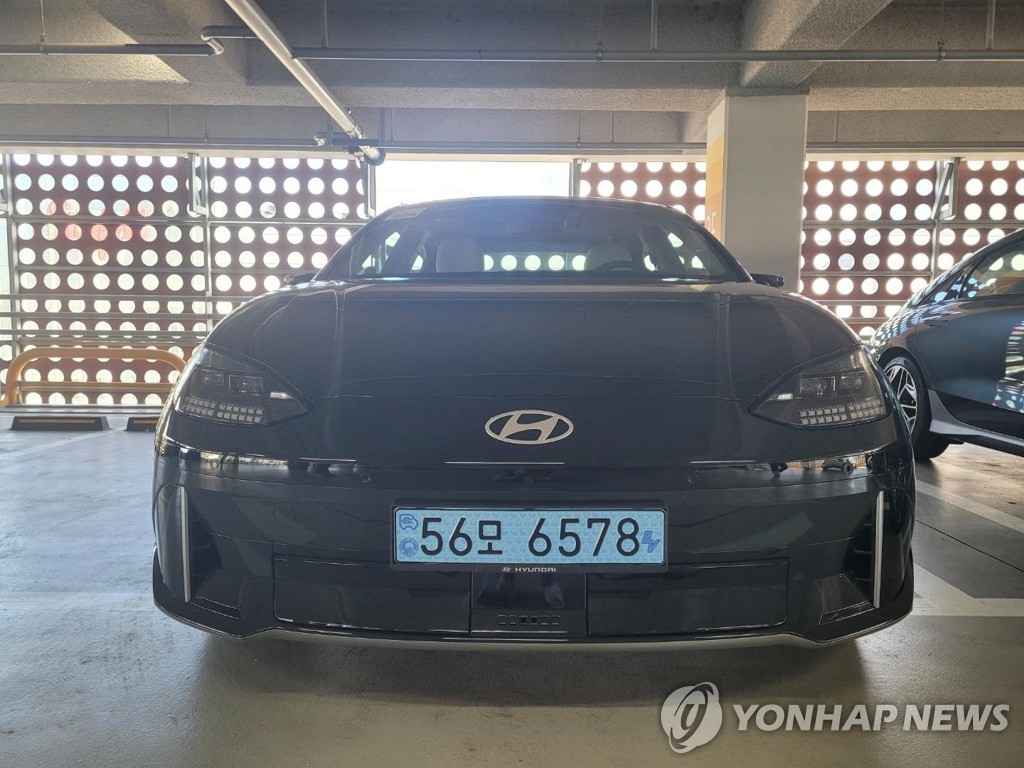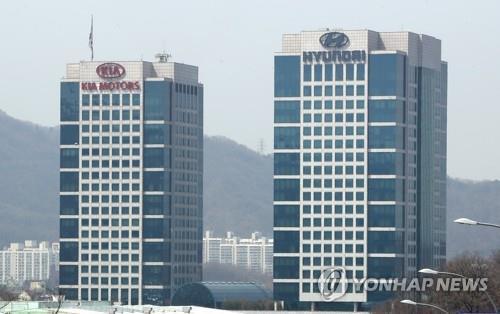- California Assembly OKs highest minimum wage in nation
- S. Korea unveils first graphic cigarette warnings
- US joins with South Korea, Japan in bid to deter North Korea
- LPGA golfer Chun In-gee finally back in action
- S. Korea won’t be top seed in final World Cup qualification round
- US men’s soccer misses 2nd straight Olympics
- US back on track in qualifying with 4-0 win over Guatemala
- High-intensity workout injuries spawn cottage industry
- CDC expands range of Zika mosquitoes into parts of Northeast
- Who knew? ‘The Walking Dead’ is helping families connect
Hyundai Motor ups annual revenue guidance after weak Q3
Hyundai Motor Co. on Monday raised its annual revenue and operating profit margin guidance after reporting a 5 percent on-year decline in third-quarter net profit on provisions involving engine-related services.
The South Korean carmaker expected its on-year revenue will grow by 19-20 percent this year, which is higher than the 13-14 percent growth last year. It reported 117.61 trillion won (US$81.67 billion) in revenue in 2021.
Hyundai also projected its operating profit margin to reach 6.5-7.5 percent from 5.5-6.5 percent during the same period, helped by an improved product mix and reduced incentives in major markets.
But Hyundai revised down its annual vehicle sales target by 7 percent to 4.01 million units from 4.32 million set early this year due mainly to the prolonged Russia-Ukraine war and chip shortages.
“The company has raised the annual revenue growth outlook due to the friendly exchange rates and rising average selling prices driven by an improved product mix despite the downward revision for the annual vehicle sales target,” Hyundai Senior Vice President Koo Za-yong said in a conference call on the quarterly results.
The dollar rose to an average of 1,338 won in the third quarter from 1,157 won a year earlier, according to the Bank of Korea.


This undated file photo shows the all-electric IONIQ 6. (Yonhap)
On Tuesday, shares in Hyundai Motor fell 3.3 percent to 161,500 won after the earnings’ release, far underperforming the broader KOSPI’s 1 percent gain.
Looking ahead, Hyundai said it is “on track to report a record annual revenue result” on the back of improving chip supplies and high-end Genesis, SUV and electrified models despite the massive provisions in the July-September quarter.
Hyundai put aside provisions worth 1.36 trillion won to resolve additional complaints involving the Theta II gasoline direct injection (GDi) engine and offer other customer services in the third quarter.
It is the second time for the maker of the Sonata sedan and the Palisade SUV to reflect massive provisions in its quarterly bottom line.
In 2019, Hyundai Motor Group reached a settlement with car owners over the Theta II GDi engine for problems, such as engine stalling and non-collision fires, in the United States.
Hyundai Motor reflected 2.1 trillion won worth of provisions in the third-quarter results of 2020. Its smaller affiliate Kia Corp. set aside 1.3 trillion won.
As a result, Hyundai’s third-quarter net profit fell 5 percent to 1.41 trillion won this year from 1.48 trillion won a year earlier.
Operating profit declined 3.4 percent to 1.55 trillion won from 1.60 trillion won during the same period, with sales rising 31 percent to 37.7 trillion won from 28.87 trillion won.
Hyundai has also lowered its planned capital expenditure to 8.9 trillion won this year from 9.2 trillion won amid increasing external uncertainties.
As for its efforts to respond to the Inflation Reduction Act (IRA), Hyundai said it will seek cooperation from the Seoul government and consider countermeasures to push forward its electrification push in the U.S.
On Aug. 16, U.S. President Joe Biden signed the US$430 billion bill, which allows up to $7,500 of tax subsidies only for EVs assembled in the U.S. The new law is widely expected to deal a blow to the Korean carmakers, which manufacture all of their EVs at home.
Hyundai aims to sell 28 percent of the 1.87 million global electric vehicle target in the world’s most important automobile market in 2030.
In 2023, Hyundai targets a 40 percent increase in EV sales compared to this year’s goal of 220,000 units, with a focus on the IONIQ 6 and IONIQ 5 models.
From January to September, Hyundai logged a strong performance, reporting a 26-percent on-year jump in net profit at 6.27 trillion won. Operating profit jumped 26 percent to 6.46 trillion won on sales of 104 trillion won, up 20 percent from a year ago.
Hyundai sold a total of 2,901,535 autos in the first nine months, down 1 percent from 2,930,087 units during the same period of last year.











